Britain forced to consider ‘Plan B’ as Covid cases, deaths and hospitalisations sharply rise
After a terrible start to the pandemic, Britain wanted to show the world how to live with Covid-19. Now things are not looking good at all.
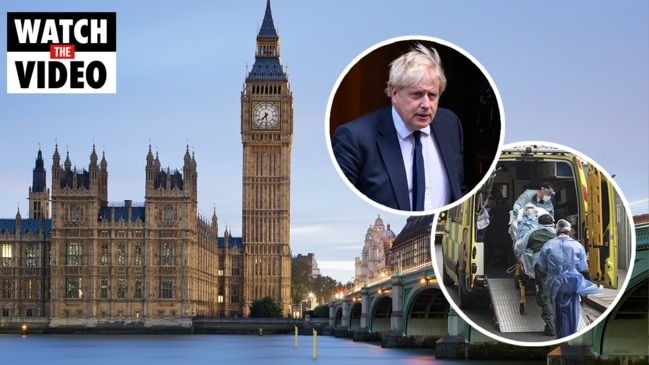
When vaccinations first began to be rolled out across the world, Britain was determined to prove a point.
The heavily populated island nation, renowned for its bad weather and gatherings at pubs, was perhaps unsurprisingly hit harder by Covid-19 than many other European nations when the virus first breached its borders.
It went on to record one of the continent’s worst death toll from the disease and its citizens endured month-upon-month of tough lockdown restrictions to keep the strain off hospitals.
The government, meanwhile, was found to have made one of the worst “public health failures ever experienced” as it tried to live with the virus with an ill thought plan for herd immunity which had to be rapidly ditched as cases and deaths soared.
However, with the arrival of vaccines late last year, Britain became the envy of a number of nations around the world.
It was the country that gave the world one of the most widely used and effective vaccines and came out of lockdown earlier than many as its jab rollout raced ahead of other European nations.
There was a feel-good factor in the air this summer as massive crowds flocked to Premier League games, pubs returned to full capacity and the restrictions that had plagued the nation for so long were consigned to history.
Flash forward to today and that feel-good factor is seriously on the wane as the nation heads towards an uncertain winter – with cases, deaths and hospitalisations soaring and calls for new restrictions.

Britain copping it hard
Infection rates remain alarmingly high, contrasting sharply with its European neighbours and prompting fresh questions about what the nation should do next – as the weather gets colder and the days get shorter.
Overnight, the nation recorded its worst daily death total from the virus since the beginning of March – with a further 223 people succumbing to the disease in the past 24 hours.
For two weeks, the number of new cases has wavered between 35,000 and 40,000 a day, and on Monday nudged closer to 50,000 – the highest since the July peak of the “Delta” variant outbreak.
A map on the UK government’s Covid-19 website shows almost every part of England, Wales and Northern Ireland in a dark shade of purple – indicating incredibly high levels of transmission in almost every corner of the isles.
Covid rates are soaring among largely unvaccinated secondary school children and infections spilling over into older, more vulnerable age groups who – even though they are largely vaccinated — are at risk from breakthrough infections of the disease.
The daily death toll has often exceeded 100 since the summer, adding to an overall toll of more than 138,000, second only to Russia in Europe.
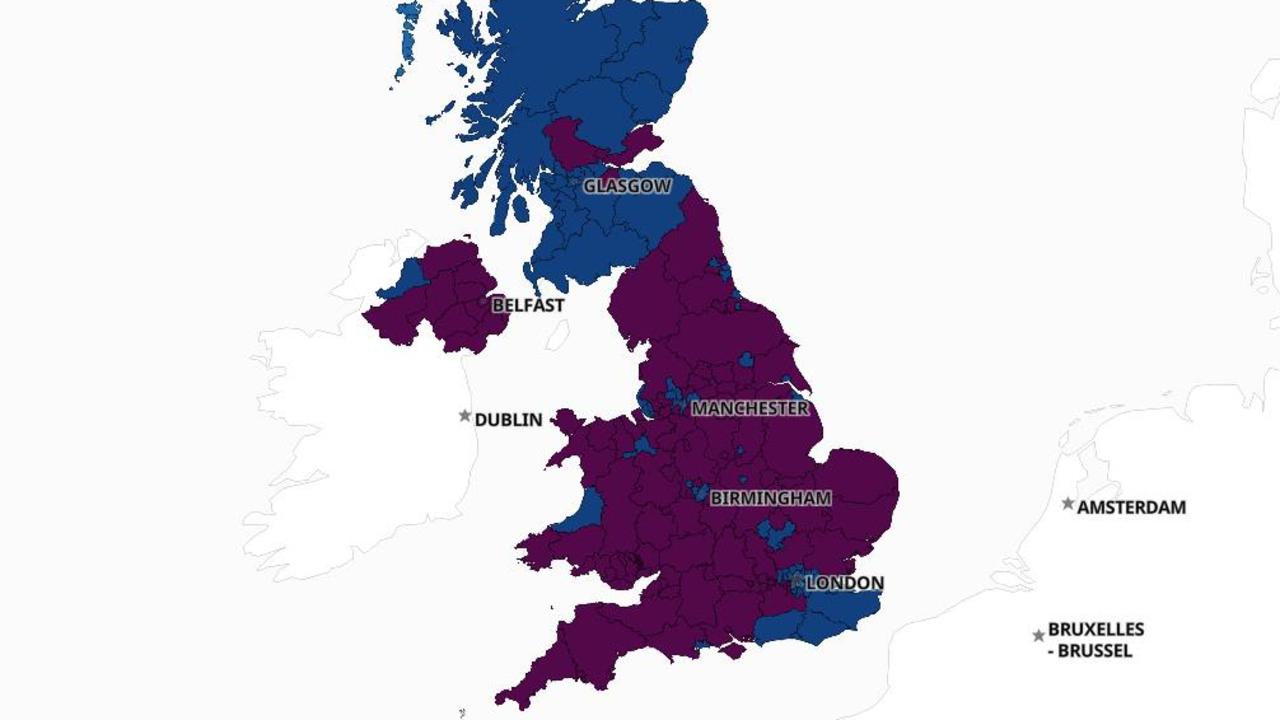
“Sadly, at the moment the UK has a higher level of Covid-19 than most other comparable countries, this is seen not just in positive tests but in hospital admissions and deaths,” said Jim Naismith, professor of structural biology at the University of Oxford.
Across the Channel, France is recording some 4000 cases a day and Germany 10,000. Deaths are running at about 30 and 60 daily respectively.
Questions are being asked about the gulf in figures, even if Prime Minister Boris Johnson – who survived a spell in hospital intensive care with Covid – appears unperturbed.
Scientists have already voiced fears that the high underlying number of cases could overload the state-run National Health Service, which is often under pressure in autumn and winter from respiratory infections.
“We always knew the coming months could be challenging,” Mr Johnson’s official spokesman told reporters earlier this week. “But it’s important to strike the right balance between protecting lives and livelihoods.”
Overnight, that tone has shifted slightly. His government now says it is keeping a “very close eye” on increasing numbers of cases, and acknowledged there are signs that the number of hospital admissions and deaths are also rising.
Mr Johnson’s official spokesman said: “The most important message for the public to understand is the vital importance of the booster program and indeed for those children who are eligible to come forward and get our jab.”
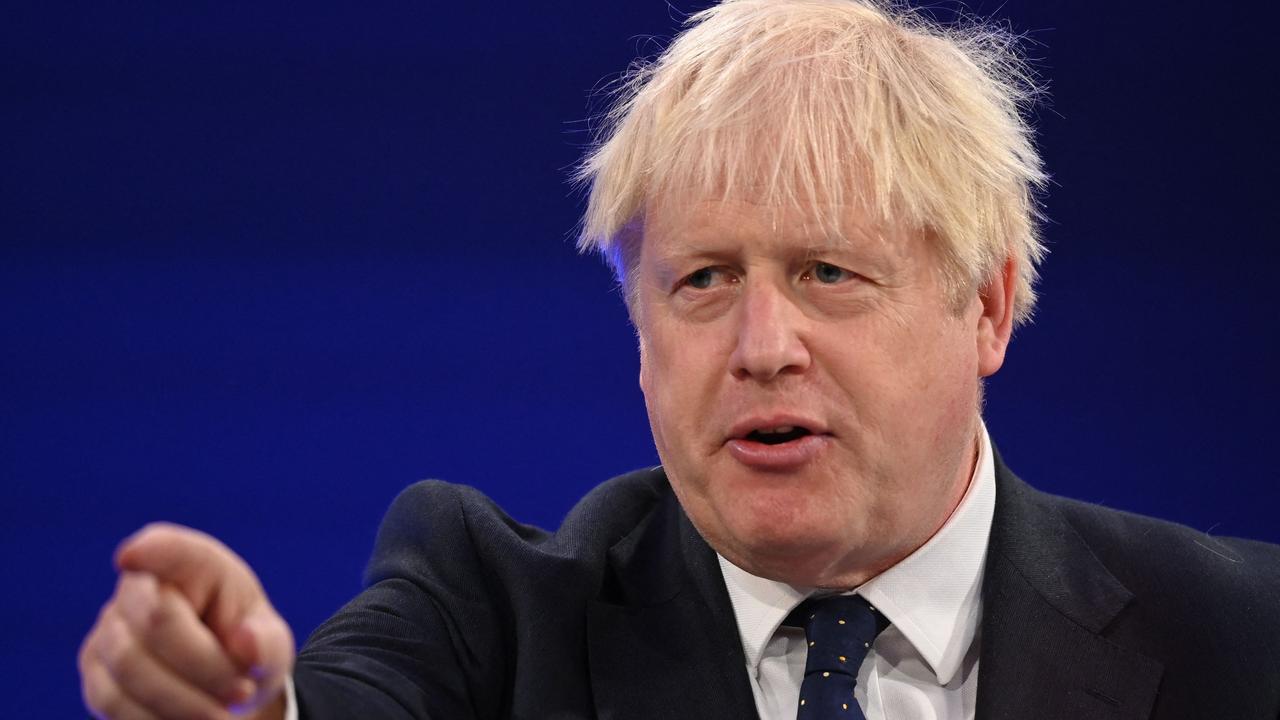
Vaccine rollout comes to standstill
The UK’s Covid vaccination scheme started in December 2020, and was the first one in the world. The government says that 78.9 per cent of the population over the age of 12 has received two doses of a jab.
However, the push now to get as many booster shots in arms as possible is sluggish – as is the drive to get more children aged between 12 and 15 years vaccinated.
Professor Neil Ferguson, from Imperial College London, told BBC Radio 4’s Today program that immunity in the UK appears to be “waning” because of the country’s early success in rolling out the vaccination scheme.
Accelerating the booster programs and vaccinating teenagers would be “critical” to reducing transmission of the virus, Prof Ferguson said.
He also urged caution, saying: “People need to be aware that we currently have higher levels of infection in the community than we’ve almost ever had during the pandemic.”
Seven-day averages from Britain show cases have increased by 16 per cent, deaths have increased by 14.6 per cent and patients admitted to hospital have increased 10 per cent.
The level of transmission is now so high that there are serious concerns about how the nation’s hospital system will cope.
Coronavirus restrictions were lifted across the country in July after three national lockdowns, but some scientists have suggested that measures to mitigate close-contact transmission, such as mask-wearing indoors, could be needed to prevent cases spiralling further.
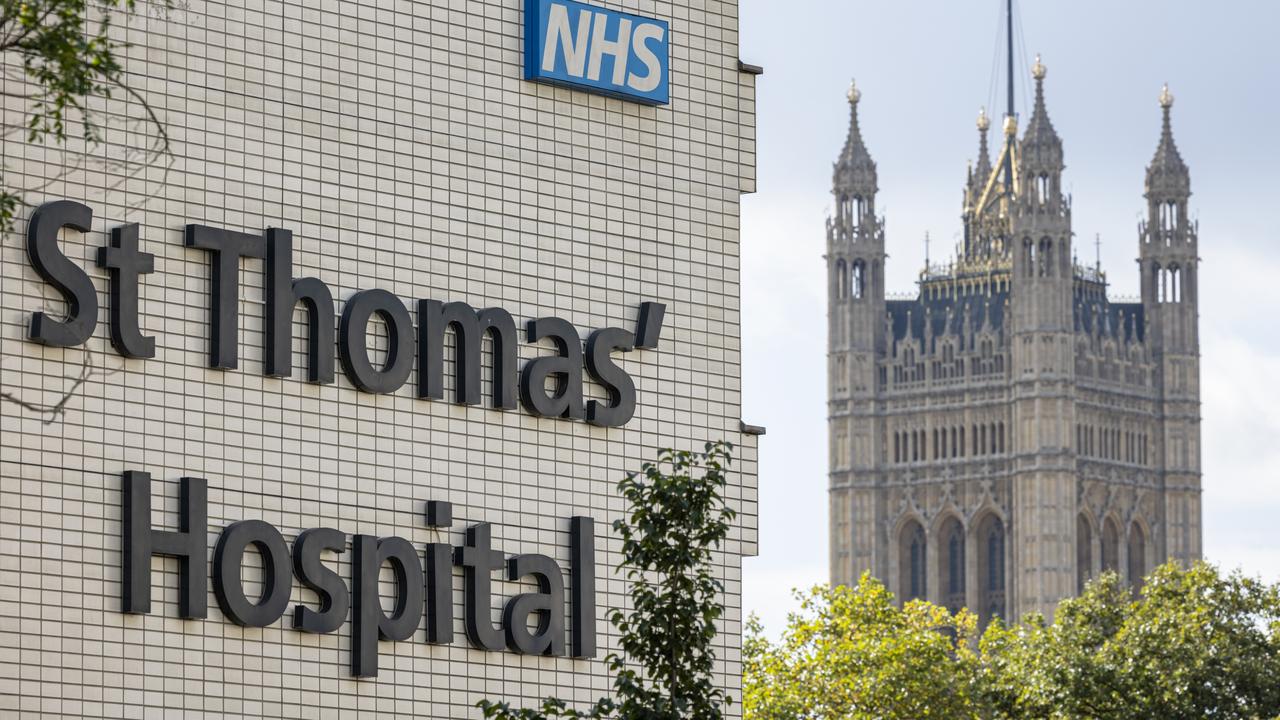
The BBC reports that under the government’s winter plan, if the measures currently in place are not enough to prevent “unsustainable pressure” on the NHS, then steps like making face coverings mandatory in some settings and introducing vaccine passports could be considered as part of a “Plan B”.
‘Subvariant’ of the Delta strain emerges
As if the situation wasn’t looking grave enough, the government overnight said it was monitoring a subvariant of the Delta strain of the coronavirus, which has been seen in a growing number of cases.
Mr Johnson’s spokesman said the government was keeping a “close eye” on the AY. 4.2 variant but said there was no evidence it spreads more easily.
“As you would expect, we are monitoring it closely and won’t hesitate to take action if necessary,” he told reporters.
Francois Balloux, professor of computational systems biology at University College London, said AY. 4.2 has two spike mutations found in other coronavirus variants and was first sequenced in April 2020.
The subvariant was “rare” outside Britain and there had been only three cases detected so far in the United States, he added.
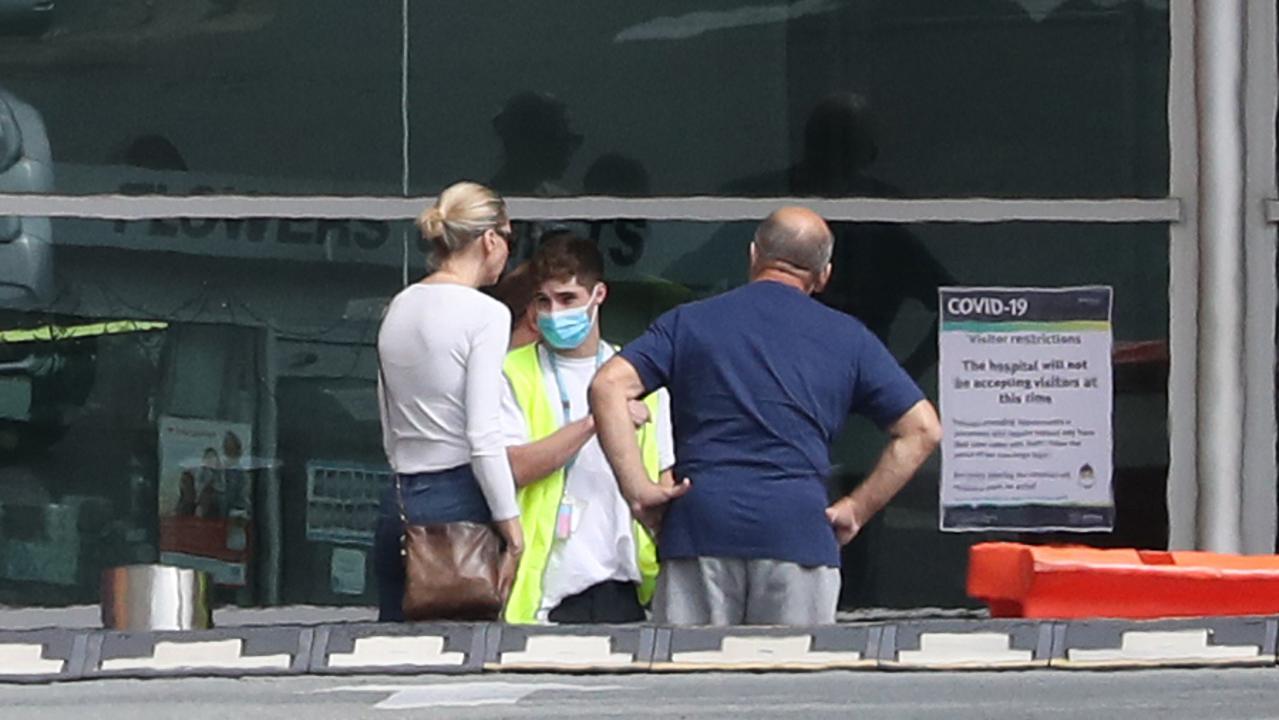
“As AY. 4.2 is still at fairly low frequency, a 10 per cent increase in its transmissibility could have caused only a small number of additional cases.
“As such it hasn’t been driving the recent increase in case numbers in the UK.” Bayroux, director of the UCL Genetics Institute, added: “This is not a situation comparable to the emergence of Alpha and Delta that were far more transmissible (50 per cent or more) than any strain in circulation at the time.
“Here we are dealing with a potential small increase in transmissibility that would not have a comparable impact on the pandemic.”






